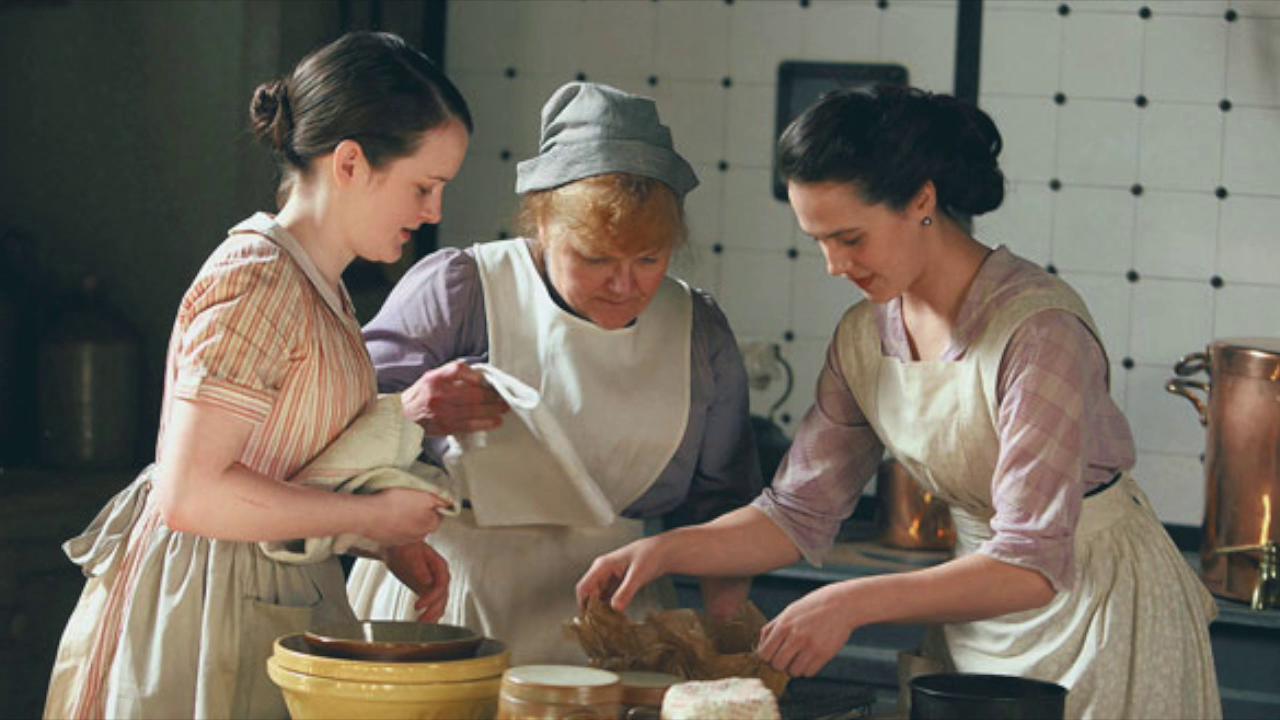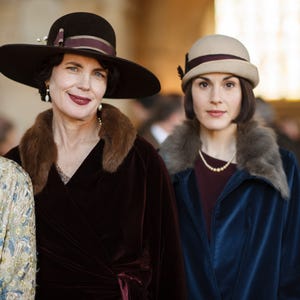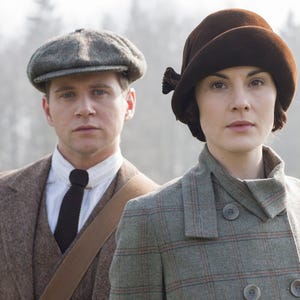Cast, producers will miss 'Downton Abbey,' too

Downton Abbey creator Julian Fellowes knows the pain fans feel saying farewell to the Crawleys and their household staff, as the Masterpiece on PBS drama approaches Sunday's two-hour series finale (9 p.m. ET/PT).
"It is slightly emotional to say goodbye to them all," says Fellowes, an executive producer who writes the show. "Fans, in a sense, think the characters are real, but so do I."
The finale of Downton, which finishes its six-season run as PBS's most-watched show (peaking with 13.2 million episodes in Season 4), will feature developments for many characters.
For "the principal characters, we'll have a sense of where they end up. Some stories will be left up in the air and some will be more definitely resolved," executive producer Gareth Neame says. "Their lives are going to continue. Our camera is just going to move away."
That camera could return, as there is talk of a feature film, although nothing is firm. Fellowes, Neame and actors are interested, Neame says, but it depends on the availability of cast members busy with follow-up roles.
"If Julian writes something that brings us back together, that would be very exciting," says Laura Carmichael (Lady Edith), who is now appearing in a play in London, The Maids, and has upcoming roles in a United Kingdom TV crime drama, Marcella, and A United Kingdom, a feature film.
Cast members, busy with new projects, do their best to stay in touch. "We really felt like a family," says Carmichael, who hopes people will remember Downton "as something they could enjoy with all their family."
One of Carmichael's favorite Downton moments comes from the penultimate episode, in which Edith and her older sister, Lady Mary (Michelle Dockery), have a huge argument. They reconcile when Edith attends Mary's wedding to Henry Talbot (Matthew Goode).
"That was a fight that had been brewing for years," she says. Their later discussion about the bond of sisterhood "was a special scene as well. We were both genuinely moved."
Change has been a constant in the English upstairs-downstairs drama, which started in 1912 and closes in 1925. Women's roles evolved, with Mary, Edith and their mother, Cora (Elizabeth McGovern), taking on professional responsibilities. Servants such as Daisy (Sophie McShera) and Molesley (Kevin Doyle) advanced themselves through education. Characters also adapted to loss following the deaths of Lady Mary's husband, Matthew, and her sister, Lady Sybil.
The final season's theme has been "that change had come to Downton Abbey," Fellowes says. The Crawleys "were surviving by not being too stuck in their ways. … If they could change, there would be some level or other on which they would get through."
Combining familiar elements and modern storytelling techniques has contributed to Downton's popularity, Neame says.
"We take a much-loved environment, the British aristocracy, stately homes, costumes, the etiquette, but we've rebooted that world," Neame says. "This is an original, often soapy, melodramatic, popular piece of entertainment. That allows us to make the storytelling fast-paced, (with) multiple characters and intertwined storylines."
The finale promises intriguing developments.
"If you've followed Edith for six years of disappointment, you're interested to see whether her fortunes will change at the very end," Neame says. "I think fans are desperate to know about where they end up, to see whether they get their happy endings – or sad endings."


